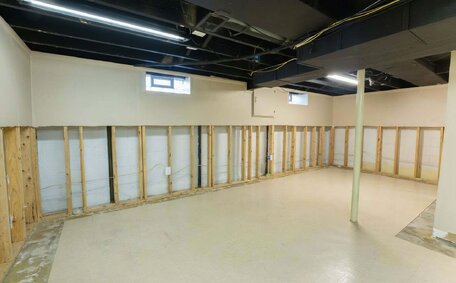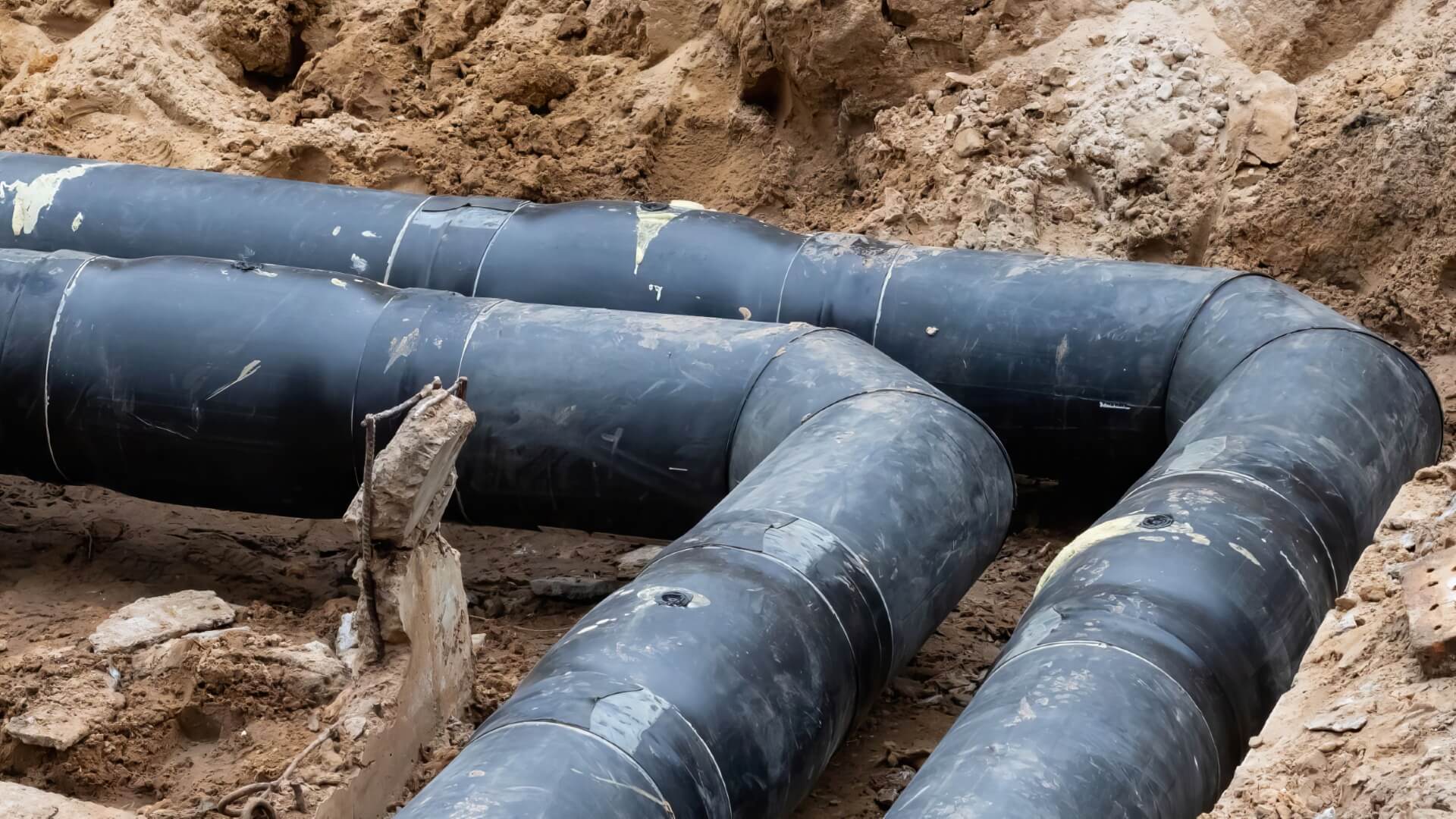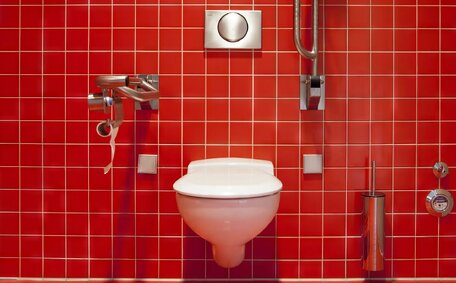Introduction to Gas Appliance Disposal
Responsible disposal of gas appliances is vital for environmental protection and gas safety.
Gas appliances that are no longer being used can lead to harmful gas leaks lingering for longer than anticipated if not properly decommissioned, impacting your health. It’s imperative to properly dispose of gas cylinders and appliances, ensuring they are switched off, emptied and safe.
There are environmental concerns with releasing refrigerants from dryers, air conditioners and refrigerators into the atmosphere. Appliance gases are often potent greenhouse contributors, exacerbating climate change. Ignoring environmental considerations when releasing these gases worsens pollution.
There are also safety issues if gas appliances are not fully degased before disposal. Incorrectly turned off gas sources can lead to explosive or poisoning hazards due to residual gas accumulation. It is essential to carefully follow appropriate decommissioning procedures before recycling.
This article will lay out the necessary care in steps recommended for recycling gas appliances safely and disposing of your old common gas appliances found at home. Key actions involve understanding how to turn off, degas, dismantle, recycle, donate or responsibly dispose your old appliances, including your heater, gas stove, hot water systems, space heaters and more. Finding ways to recycle your gas appliances is critical for health, safety and environmental reasons.
Environmental and Safety Concerns with Old Gas Appliances
Professionals can help ensure your gas heaters, if old units that are not properly decommissioned, do not pose environmental and safety hazards. Many older gas appliances contain ozone-depleting refrigerants and insulation materials with concerning chemicals like asbestos.
If these materials leak during irresponsible disposal, they can contaminate soil and groundwater. Refrigerant gases also contribute to climate change if released into the atmosphere. Faulty gas lines or valves on old units may leak over time, potentially causing serious health concerns that might necessitate health care due to gas build-up and explosion risks.
Landfilling appliances containing any fluids or hazardous content, like butane, is environmentally irresponsible. There’s no justification for such risks of contamination lingering due to chemical leakage. Safety procedures like turning off gas valves, draining fluids, and removing insulation are required first.
Proper disposal through approved waste recycling centres, metal scrap merchants or collection services ensures resource management and safety standards are met. Yet, most people often underestimate the risks, attempting do-it-yourself removal to get rid of old appliances. Professional assistance can ensure the safe, eco-friendly disposal of gas devices, a task with daily environmental implications.
Preparing Old Gas Appliances for Safe Disposal
Safely preparing old gas appliances for disposal requires adherence to key steps, especially when you’re using specific protocols for degassing and disassembly:
- Make certain to keep the cylinder upright, turning off your own gas supplies – find the cylinder valve to ensure the gas isn’t running when preparing the cylinder for disposal. This reduces the risk of explosions from residual gas.
- Drain all fluids - Drain water from hot water systems, which contain refrigerant gases from fridges or air conditioners, properly.
- Remove covers/casing - Dismantling allows inspection for hazards like asbestos in insulation.
- Check for gas leaks in your items - Check your gas connections with leak detection spray after shutting off valves to confirm there are no leaks.
- Label hazards like refrigerant types in your cylinder - Identify any hazardous materials for proper gas cylinder recycling and disposal.
- Consider the recycling value of metals, motors and other parts from your gas appliance.
- If unsure, seek professional assistance from qualified gas fitters to advise on environmentally responsible methods.
Following these key preparation steps, it’s important to emphasize, assists you to effectively manage safety issues and lessens environmental impact when you dispose of old gas appliances. It’s important for proper decommissioning that prioritises gas safety to enable responsible ways to dispose your gas appliances, including recycling and donation.
Degassing Refrigerant from Fridges and Freezers
The disposable gas canisters contained in refrigerators and your ac unit must be properly removed before disposal due to their potent greenhouse effects. Preventing refrigerants such as CFCs and HCFCs from leaking is critical as they have a climate change impact.
Degassing refrigerant from your air conditioner involves a careful process:
- Locate the sealed system service valves and ensure they are shut off
- Connect approved refrigerant removal equipment to the service valves
- Draw out all remaining refrigerant gas into a recovery cylinder for safe disposal
- Check for leaks and seal the system if fully degassed
- Label the empty cooling unit as degassed for recycling
Environmental laws require consulting a licensed gasfitter for the safe degassing of old appliances. Attempting DIY removal risks leaked gases and legal penalties. Professional disposal services ensure refrigerants are safely extracted and managed.
Dismantling Other Gas Appliances
Beyond cooling appliances, other common gas units like stoves, hot water systems and space heaters require safe dismantling too before disposal. Key steps include:
- Turning off gas supply lines and burners
- Removing outer panels/casing to expose insulation
- Checking insulation for hazardous materials like asbestos
- Taking apart components like metal framing, motors and valves
- Inspecting for gas leaks throughout dismantling
- Labelling parts for material recycling where possible
If in doubt regarding safe dismantling of gas appliances, seeking assistance from certified gas fitters is advised. They can ensure units are fully deactivated and components properly separated for disposal, recycling or reuse where practical.
Responsibly dismantling unusable gas appliances, which can take place in recycling streams after proper deactivation, to get your home rid of them requires some care and safety know-how. Methodically working through switch-off, drainage, dismantling and leak testing steps helps to get rid old units in a safer manner and keeps dangerous materials out of landfills.
\ - Turning off gas supply lines and burners
\ - Removing outer panels/casing to expose insulation
\ - Checking insulation for hazardous materials like asbestos
\ - Taking apart components like metal framing, motors and valves
\ - Inspecting for gas leaks throughout dismantling
\ - Labelling parts for material recycling where possible
\
If in doubt regarding safe dismantling of gas appliances, seeking assistance from certified gas fitters is advised. They can ensure units are fully ts or injuries. Many older units are bulky, with fridge/freezers weighing over 100kg.
When aiming to get off your old appliances, key safety tips extend beyond the basics:
- Check any your appliance weight and dimensions first
- Use an appropriately rated trolley/dolly for movement
- Secure the appliance firmly to prevent shifting
- Transport in your vehicle if enclosed or use a trailer
- Always adopt manual handling safety, including assistance from others for very heavy items
- Ensure old appliances don’t pose leak risks if transporting inside vehicle compartments.
You can get the best strategy if looking to sell your old, heavy appliances for scrap, exercising caution when moving and preparing them for disposal to reduce risks. Opt for professional assistance if you’re uncertain about safe handling during transport for recycling or disposal.
Recycling and Responsible Disposal Options
There are several commendable options, including hiring a removal company, for recycling old gas appliances rather than resigning them directly to landfills. Many local councils now offer services that can handle even small appliances for safe disposal during hard waste collection.
Some retailers run trade-in or takeback schemes, which people find beneficial when new gas appliances are purchased, ensuring old units are recycled responsibly. Contacting manufacturers can determine if they handle appliance recycling too.
Where possible, components like metal parts, motors or valves should be dismantled for material recycling. Other materials like insulation or plastics can make new products from old ones when recycled by specialty services.
If recycling is not practical and the landfill bin is the only option, responsible disposal means clearly labelling gas your appliances as deactivated and degassed to prevent safety issues. Approved disposal facilities manage hazardous materials from gas appliances to prevent environmental contamination.
Responsible disposal of end-of-life gas appliances minimizes risks and supports sustainability. It’s important to note that both council and private services exist to assist with managing old gas appliances effectively.
Recycling Requirements for Gas Appliance Materials
Many components and materials from old gas appliances, like your tank, can recycled rather than being consigned to a landfill. Metals like steel and aluminium from frames, doors and tanks can be recycled for their value. Copper piping and electric motors are also widely recyclable.
Some plastics may be recyclable if properly marked, so always verify recycling codes. Insulation materials will likely require disposal as hazardous waste.
Refrigerant gases need professional extraction, to then be prepared for recycling. This process falls under types waste that require specific handling.
During dismantling, separate and label materials from gas cookers for the correct recycling path. Adhere to any guidelines regarding required handling, transportation or processing from your local recycling centre. Responsible recycling reduces landfill waste and environmental impact.
Hazardous Waste Disposal Through Council
Many local councils offer chemical cleanout and household hazardous waste disposal and recycling services for residents. These services allow environmentally responsible disposal of hazardous items like old gas appliances.
Council services may include scheduled hard rubbish waste drop off days for items like your empty gas canister or your old gas cooker, on-call pick up services or permanent depots. Accepted items can include degassed gas bottle cylinders, gas cookers, heaters, hot water systems, and other items deemed as hazardous products.
Find out where to dispose of your gas appliances by leveraging the knowledge of your council: ask your local council about the appropriate recycling test stations or locations and enquire about hazardous and hard waste disposal services in your area. Be prepared with details on appliance types, sizes and hazardous materials when enquiring about gas appliance disposal options.
Using council hazardous waste services ensures proper handling of dangerous appliance materials, preventing inappropriate landfilling.
Using Professional Removal and Recycling Services
It is wise to engage professional removal and recycling services for the safe, responsible disposal of old gas appliances.
Specialist companies can even provide trained professionals to ensure:
- Proper procedures for decommissioning, like degassing and dismantling, can also be managed safely
- Hazardous materials are handled correctly
- Maximum recycling of components and materials
- Legal compliance for waste transportation and disposal
With their training and experience, professionals offer insights into safely disposing of hazardous end-of-life appliances.
Utilising qualified appliance disposal services ensures safe disposal, risk reduction and maximises recycling. Costs are often reasonable considering the labour intensive work involved.
Contact approved collectors for services such as scrap metal collection, council disposal programs, or specialist appliance disposal companies. Discuss appliance details for tailored removal quotes and find out the best way to back recycling efforts.
Donating Still-Functioning Appliances
If gas appliances like stoves, hot water systems or room heaters are in working condition, consider donating them to charity or community groups when upgrading units. Many organisations that know about aiding those in need accept donations of good working appliances.
For responsible donation of working gas appliances:
- Having a licensed gas fitter service and safety check appliances before donation is crucial.
- Clearly label appliances as tested and safe to operate
- Ensure your donation, like delivering appliances securely, reaches the intended donation centre or charity
- Provide instructions for use of the specific model
Donation is an effective way to keep functional appliances out of landfills. It also provides household necessities for struggling community members and families when they need it most.
Legal and Environmental Compliance
Adhering to federal, state, and local gas appliance disposal regulations is critical for environmental and safety reasons. Laws restrict how hazardous materials and components must be handled, transported and processed to minimise contamination or injury risks.
Compliance hinges on identifying and following the most appropriate regulatory guidelines:
- Safely degassing refrigerants which are governed for their global warming and ozone depletion potential
- Identifying safe ways get to dismantle and dispose of insulation containing dangerous fibres like asbestos
- Waste tracking of appliances and parts being transported between collection sites, transfer stations and processing facilities
- Recycling separated metals and plastics via approved materials recovery streams and processing centres
Non-compliance with disposal regulations can result in prosecutions and substantial fines. But more importantly, failing to comply makes it more likely gases harmful to the atmosphere or poisons dangerous to the community and environment will be released.
Exercising responsible disposal and recycling practises in line with laws preserves sustainability and protects public health and safety. Where unsure on legal requirements, consumers should consult appliance removal specialists.
Adhering to federal, state, and local gas appliance disposal regulations is critical for environmental and safety reasons.
Safely degassing refrigerants which are governed for their global warming and ozone deegulations for Gas Appliance Disposal Local councils have regulations regarding gas appliance disposal to ensure environmental and public safety. In the St Peters area of Sydney, all residents must contact Canterbury-Bankstown Council before attempting disposal of items like hot water systems or gas stoves.
The council provides scheduled monthly pickups for safe collection, which includes services where your recently deactivated appliances can be placed curbside for removal. Their guidelines require you to remove your appliances, have them emptied and disconnected by approved technicians before placing curbside for pickup. Residents must also notify of all disposal items and volumes, which indicates required info, for council truck allocation and waste tracking.
Checking Canterbury-Bankstown Council’s website or getting in touch with us directly for their waste management team enables locals to understand the latest regulations for responsible gas appliance recycling and disposal.
Adhering to Federal Recycling Laws
There are federal environmental regulations regarding responsible recycling and disposal of gas appliances and their hazardous materials. Key laws include:
- The Ozone Protection and Synthetic Greenhouse Gas Management Act - Covers decommissioning and degassing ozone-depleting refrigerants
- The Hazardous Waste Act - Sets requirements for handling and transporting hazardous components like insulation
- The Product Stewardship Act - Requires manufacturers and importers to participate in recycling programmes
- The National Television and Computer Recycling Scheme – Manages recycling of components like motors and circuit boards
To comply, consumers should utilise professional appliance removalists adhering to these national environmental and safety laws. Failing to properly degas and recycle old units breaches federal regulations.
Minimizing Environmental Impact
When disposing of gas appliances, particularly in regions such as South Wales, it’s crucial we minimise environmental impact. Key steps include:
- Properly extracting hazardous refrigerants using professional services to prevent leakage
- Safely containing and transporting hazardous insulation like asbestos to approved facilities
- Dismantling components for recycling rather than landfilling where possible
- Donating operational appliances both reduces waste and aids those in need
- Using council hazardous waste collections that comply with tracking and processing regulations
Practising environmental responsibility demands effort, yet the positive outcomes validate our collective impact. But the returns of safer communities, reduced pollution, and sustainable waste management reward us all. Simple actions - recycling an old fridge or donating a usable stove - make positive impacts when we dispose of appliances mindfully.






